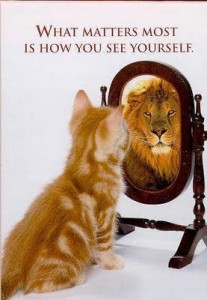
There have been a few posts lately discussing leadership – Leading from the front and What does it really take to be a good leader to name just a couple. The two blogs brought up interesting points – the use of personality types in leadership training can be used as excuses for behaviour, and a question of whether we shy away from asking the tough questions? This has inspired me to share my own two cents worth on the topic.
What is good leadership is essentially subjective, yet there are common qualities and skills among the differing descriptions. Knowing one’s own strengths and weaknesses is a skill that is vital to success as a leader, yet it is missing in most descriptions. This can be discovered through personality testing as Richard mentioned, but I agree with his comment of their potential use as a curtain to hide behind. My most preferred method is through self-exploration. a>
Continued self-exploration to gain awareness is the only real way anyone can achieve holistically and continuously (without relying on external measurement). It can be hard because no-one likes to admit they aren’t perfect and your ego, if left unchecked, will fight you the whole way. But ‘so what’ if the journey is hard – no one said it was meant to be easy.
Addressing your weaknesses can make you a better person. For example, I for one know building relationships and staying connected is important in leadership, as outlined in both the blogs mentioned above, yet it is one of my downfalls as a self-professed hermit. The fact that I am aware of my love of solitude mixed with my desire to be a ‘better’ leader gives me the personal drive and self-awareness to address my title as a recluse throughout my leadership journey. I address it through honouring that truth, yet continually challenging it in order to stimulate my own personal growth. In short – it’s got me out and about more.
As we all know, good things take time. Honest self-assessment is not just a one-off thing that will ‘fix’ everything for you, it is something that needs to be practised on a regular basis and then the findings need to be addressed and worked on habitually. This is the only way to ‘be’ the leader or the person you are proud to be.
In summary leadership is largely about being true to your-self. Figure out who you want to be and what you want to be remembered for among your peers, colleagues, family, and friends. Figure out what is important to you and follow that truth. If being abhorrent to reason, manipulative, and mean is part of your ‘truth’, so be it. If in your journey of self discovery you have uncovered that in fact you are a person you don’t want to be – then change it. All that you are is within your power to change.

